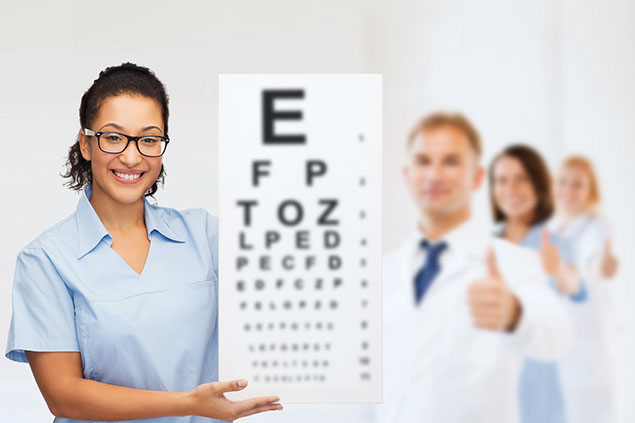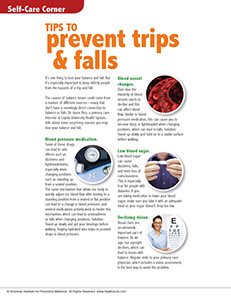SYMPTOM CHECKER
CONDITIONS
Male
Female
Child
Arm, Hand & Shoulder Concerns
Legs & Feet Concerns
Dental & Mouth Concerns
Ear & Nose
Eye Conditions
Head Conditions
Arm, Hand & Shoulder Concerns
Legs & Feet Concerns
Front
Back
Arm, Hand & Shoulder Concerns
Dental & Mouth Concerns
Ear & Nose
Eye Conditions
Head Conditions
Arm, Hand & Shoulder Concerns
Dental & Mouth Concerns
Ear & Nose
Eye Conditions
Head Conditions
Front
Back
Arm, Hand & Shoulder Concerns
Neck Links
Head & Neck Concerns
Arm, Hand & Shoulder Concerns
Neck Links
Head & Neck Concerns
Front
Back
Online Clinic
Wise Healthcare
Tips to prevent trips & falls

Print on Demand
It’s one thing to lose your balance and fall. But it’s especially important to keep elderly people from the hazards of a trip and fall.
The causes of balance issues could come from a number of different sources—many that don’t have a seemingly direct connection to balance or falls. Dr. Jason Rice, a primary care internist at Loyola University Health System, tells about some surprising reasons you may lose your balance and fall.
Blood pressure medication.
Some of these drugs can lead to side effects such as dizziness and lightheadedness, especially when changing positions such as standing up from a seated position. The same mechanism that allows our body to quickly adjust our blood flow after moving to a standing position from a seated or flat position can lead to a change in blood pressure, and several medications actively work to hinder this mechanism, which can lead to unsteadiness or falls when changing positions. Solution: Stand up slowly and get your bearings before walking. Staying hydrated also helps to prevent drops in blood pressure.
Blood vessel changes.
Over time the elasticity of blood vessels starts to decline and this can affect blood flow. Similar to blood pressure medication, this can cause you to become dizzy or lightheaded when changing positions, which can lead to falls. Solution: Stand up slowly and hold on to a stable surface before walking.
Low blood sugar.
Low blood sugar can cause dizziness, falls, and even loss of consciousness. This is especially true for people with diabetes. If you are taking medication to lower your blood sugar, make sure you take it with an adequate meal so your sugar doesn’t drop too low.
Declining vision.
Visual clues are an extremely important part of balance. As we age, our eyesight declines, which can lead to issues with balance. Regular visits to your primary care physician, which includes a vision assessment, is the best way to avoid this problem.
This website is not meant to substitute for expert medical advice or treatment. Follow your doctor’s or health care provider’s advice if it differs from what is given in this guide.
The American Institute for Preventive Medicine (AIPM) is not responsible for the availability or content of external sites, nor does AIPM endorse them. Also, it is the responsibility of the user to examine the copyright and licensing restrictions of external pages and to secure all necessary permission.
The content on this website is proprietary. You may not modify, copy, reproduce, republish, upload, post, transmit, or distribute, in any manner, the material on the website without the written permission of AIPM.
2021 © American Institute for Preventive Medicine - All Rights Reserved. Disclaimer | www.HealthyLife.com















































